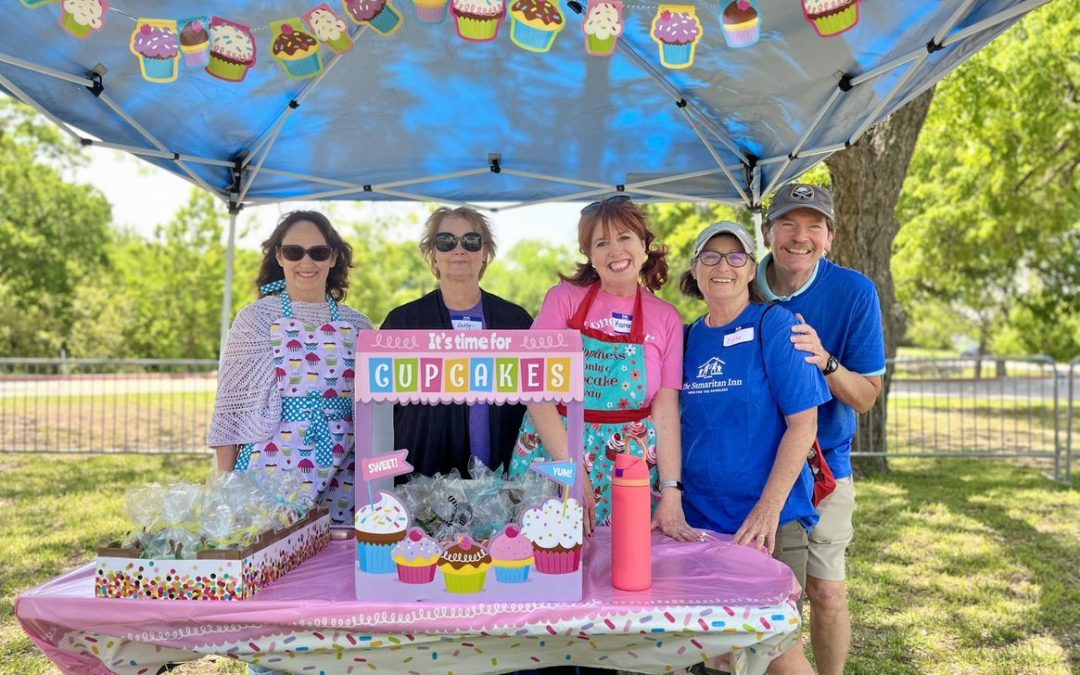The Samaritan Inn’s shelter and support services program serves single adults and families with children, with priority given to individuals from McKinney and surrounding North Texas communities. One hundred percent (100%) of those we serve are at or below the HUD definition of low-to moderate-income (those making less than 80% of the area median income). Most individuals entering the shelter are unemployed.
Applicants to their program must be willing and able to work full-time (part-time for those on disability), pass drug and criminal background screening, and follow the guidelines for community living. They must also agree to meet regularly with case management and counseling teams, complete required financial education courses and job coaching sessions, and make positive progress toward employment, savings and housing goals.
Designed as a blueprint for success—rather than a temporary “Band-Aid” solution—their program integrates best practices in interdisciplinary care to help clients reach critical milestones that underpin independence and housing stability. Shelter services and support includes:
Essential Care: They provide a stable “home-like” environment that meets basic needs for food, shelter, clothing and personal care. Situated on 15 acres, their modern facility features 20 shared rooms, 30 private family rooms, laundry facilities, a full-service dining hall, kennels for clients’ cherished pets, bicycle fleet, two lounge areas, adult and children’s libraries, outdoor exercise equipment and children’s playground, computer lab, chapel, and children’s playroom.
Case Management: Each client’s caseworker is the primary nexus for accessing services and resources. In this role, the caseworker monitors progress, adjusts goals, and acts as a mentor/advocate. Case workers typically meet weekly with clients to foster accountability, coordinate services and financial aid, and track milestones for employment, savings, health, and childcare.
Counseling: Licensed counselors support mental well-being through individual and group therapy that addresses emotional barriers and other behavioral issues. Counselors meet regularly with clients and caseworkers to coordinate care, assess progress, and facilitate access to other mental health providers.
Financial Education: Founded on evidence-based content from the National Financial Educators Council (NFEC) and led by an NFEC-certified financial coordinator, these services include assessments, classes, and coaching to boost financial literacy and set key savings goals. Classes cover basic banking, budgeting, credit and debt management, income planning, risk management, and identity theft; coaching entails help with budget and savings goals and credit review.
Career Development: Led by a career coordinator, these activities include assessments, classes, and mentoring that help clients reduce employment barriers, obtain/maintain employment, and access higher education/vocational programs for job certification and career advancement. Classes cover job readiness skills, soft skills, and interviewing; mentoring entails resume assistance, job placement, and coordination of enrollment/financial aid for college/vocational/GED programs and job-related needs (e.g., uniforms).
Family Support: They support families with activities that address every aspect of school engagement, childcare, parent needs, and child development. These services include coordination with school advocates for enrollment, transportation, tutoring, and parenting classes; aid for after-school/holiday care, daycare and summer camps/enrichment; regular on-site activities to foster learning and social/emotional development (e.g., book group, crafts, movie night); and support for Child Protective Services issues.
Wrap-around Assistance: They provide relief where needed to keep clients on track with their goals. This includes financial aid for prescription medications, transportation, career clothing, pet care/kenneling, obtaining vital records, and much more.
Agency Impact: In the last fiscal year, Samaritan Inn served 586 individuals in their shelter program, including 273 single adults and 91 families with 211 dependent children. The majority of clients served reported North Texas as their last area of residence, with 41% and 25% hailing from Collin County and Dallas County, respectively. Through these outputs and other program activities, they achieved the following outcomes:
60% of clients who stayed more than 30 days increased self-sufficiency
77% of clients who completed career development requirements reduced employment barriers
100% of clients who completed career development requirements gained employment
96% of clients who completed financial education requirements increased financial capability


Recent Comments